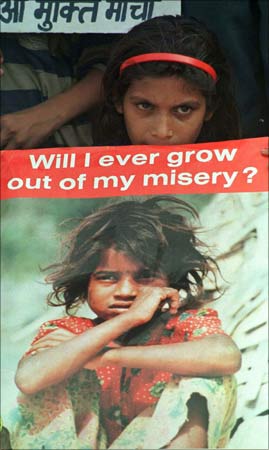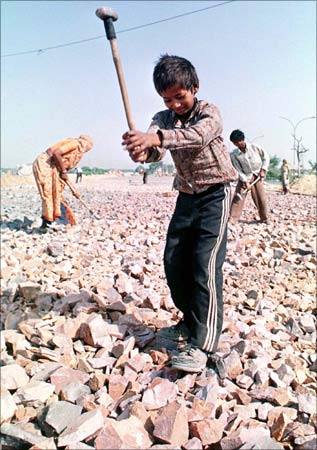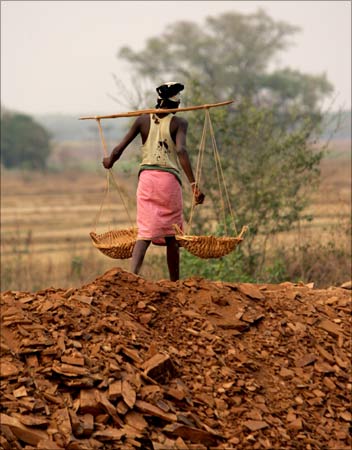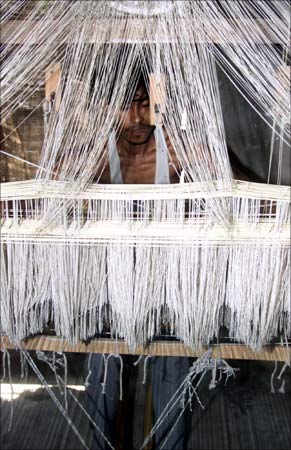 | « Back to article | Print this article |
ILO on India's scourge: Bonded labour
Bringing to the fore the ugly face of 'forced labour' in India, a new study by the International Labour Organisation has said bonded labourers often lose their freedom to choose employment due to lack of transparency in wage system and continue to work for unlimited period.
In its latest report on 'Cost of Coercion', the International Labour Organisation said bonded labour prevails in a range of sectors, including those which face extreme competitive pressure.
Text: PTI
ILO on India's scourge: Bonded labour
They include handloom weaving and rice mills and those expanding rapidly like brick kiln and stone quarrying, it said.
"Bonded labourers, and sometimes their families, lose their freedom to choose employment through a system of loans or advance payment for work," it said, citing the example of Tamil Nadu.
ILO on India's scourge: Bonded labour
However, the organisation said it is working with the central government and the state administration in Tamil Nadu to put an end to the scourge. One of them includes making advance payment system more transparent and improve social protection and working condition.
In states like Punjab, it noted that there has been some progress in improving the situation of bonded labourers, thanks to 'unionisation' of brick kiln workers.
ILO on India's scourge: Bonded labour
"This has led to increase in wages in some cases, which is one quarter more than official wages and receiving benefits including health care."
Referring to Tamil Nadu, the report said labour agents pay wage advances in a manner that "obliges" workers to return to the same kiln the following season despite putting in 16 hours and working for six days a week.
ILO on India's scourge: Bonded labour
"The agents pay substantial wage advances to brick kiln workers at the start of a season, often equivalent to three to seven months of a family's earning.
But, at the end of the season, when wages are calculated, the advances are shown as more than the work performed, obliging workers to return to the same kiln again the next season," the study said.
ILO on India's scourge: Bonded labour
The report estimated that the "opportunity cost" of coercion to workers affected by such abusive practices in terms of lost earnings has reached over $20 billion per year world-wide.
Across Asia, the report said, the system of abusive recruitment is widely prevalent. Much of the recruitment, whether through private agencies or informal networks, is inadequately regulated.
Such recruitment is one of the highest in countries like China, it said while emphasising the need for better official oversight of recruitment agencies and their practices.





